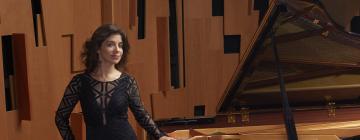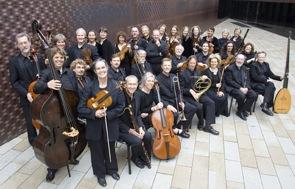
Orlando (1733) is, anachronistically, one of the most modern of Handel's operas. Among musicians, it's famous for defeating and pushing past common formal conventions of the time in pursuit of the emotional truth at the core of the main character, a knight in service to Charlemagne who goes mad for love of a Saracen princess named Angelica. Some scholars speculate that the lack of opportunities for display in the title role contributed to the defection of Handel's star castrato, Senesino, to the rival Opera of the Nobility. Today, of course, that lack of florid display in favor of musical drama is a prime recommendation for the piece.
But an average audience member is likely to be more struck by the fantasy of the opera's setting — a no-man's-land, which is transformed into various scenes by the magician Zoroastro, who presides over the drama as a kind of moral guide as well as deus ex machina who ensures that the (mostly) happy ending is achieved. In modern productions, Orlando's psychological drama occupies our visual attention, but it must have been something to see the original production's stage machinery make a grotto break open so that Orlando can be whisked away in Zoroastro's flying chariot. If you don't happen to have a flying chariot, no worries — Handel doesn't allow a moment like that to pass musically unattended.
Listen to the Music
The cast that is being assembled for this show knows Handel's score pretty well. As Orlando, Philharmonia taps English countertenor William Towers, who sang the role at Independent Opera at Sadlers' Wells in 2006, to great acclaim. The wondrous Dominique Labelle returns as Angelica and Diana Moore (who has sung here, but for the San Francisco Ballet — really) tackles Medoro, Angelica's true love. She has sung the role at the Handel Festival in Göttingen and will reprise it at the Drottningholm Theatre in Stockholm this summer. These concerts also introduce bass Wolf-Matthias Friedrich as Zoroastro, fresh from appearances in the role at Berlin's Komische Oper.
But longtime PBO-watchers fully expect the orchestra to grab some of the glory, too. They haven't won their rep as champion Handelians for nothing.

